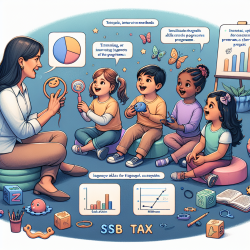Introduction
The COVID-19 pandemic has reshaped the landscape of scientific research, impacting not only the way research is conducted but also who gets to contribute to it. A recent study, "Scientific authorship by gender: trends before and during a global pandemic," sheds light on the gender disparities in scientific authorship that persisted and evolved during this period. Understanding these trends can provide valuable insights for practitioners in online therapy and education, helping them to foster more inclusive and effective practices.
Key Findings from the Research
The study analyzed 119,592 manuscripts submitted to the Institute of Physics (IOP) portfolio from January 2019 to July 2021, revealing significant gender disparities. Despite an increase in female authorship during the pandemic (from 16.5% pre-pandemic to 18.7% during the pandemic), male authors still dominated the field, comprising 82.1% of authorship. Interestingly, the pandemic did not decrease the rate of submissions from women, but the pre-existing trend of increasing female authorship slowed.
Implications for Practitioners
For practitioners in online therapy and education, these findings underscore the importance of addressing gender disparities and promoting inclusivity. Here are some strategies to consider:
- Encourage Diverse Participation: Create platforms and opportunities that encourage contributions from underrepresented groups, ensuring diverse perspectives are included in decision-making processes.
- Implement Support Systems: Develop support systems that address the unique challenges faced by women and other underrepresented groups, such as flexible work arrangements and access to resources.
- Promote Equity in Leadership: Actively work to promote gender equity in leadership roles within your organization, ensuring that decision-making bodies reflect the diversity of the communities they serve.
- Leverage Data for Improvement: Use data-driven insights to continuously assess and improve practices, ensuring that interventions are effective and equitable.
Encouraging Further Research
While the study provides valuable insights, it also highlights the need for further research to understand the full impact of the pandemic on scientific productivity and gender disparities. Practitioners are encouraged to engage in or support research efforts that explore these dynamics in greater depth, particularly in relation to online therapy and education.
Conclusion
The findings from the study on gender trends in scientific authorship during the pandemic offer important lessons for practitioners in online therapy and education. By embracing data-driven strategies and promoting inclusivity, we can create more equitable and effective outcomes for children and practitioners alike.
To read the original research paper, please follow this link: Scientific authorship by gender: trends before and during a global pandemic.










